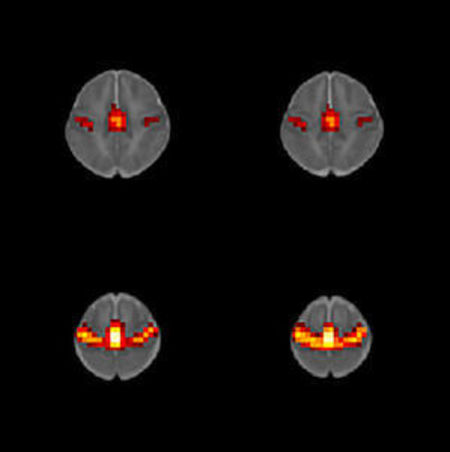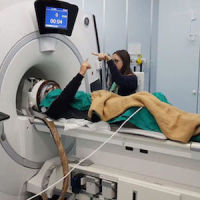One danger from opioid use in pregnancy is that when babies are born, they suffer from drug withdrawal, or a group of conditions known as neonatal abstinence syndrome (NAS). Moreover, exposure to opioids in utero is believed to have lasting consequences on brain development and behaviour.
You might also like: How Blockchain is Fighting Opioid Epidemic
As shown in new research presented at the annual meeting of the Radiological Society of North America (RSNA), prenatal opioid exposure may alter brain function in babies. Researchers examined the functional connectivity of the amygdala, an area of the brain that regulates emotion, and found changes in the way the amygdala connects to different brain regions in infants exposed to opioids.
The research was conducted by a team of obstetricians, neonatologists, psychologists and imaging scientists, who studied the brains of 16 infants using resting state functional MRI (fMRI), a technique that measures brain activity by detecting changes in blood flow.
The study cohort included eight infants with prenatal opioid exposure and eight without, or opioid naive. Resting state fMRI and anatomical MRI were performed while the infants were naturally asleep. To determine the participation of the amygdala in the resting state networks, the research team created brain maps and applied regions of interest for the left and right amygdala.
"Our early results show significant differences in the way the amygdala connects to different brain regions between the infants exposed to opioids and the opioid-naive infants," said lead author Rupa Radhakrishnan, MD, assistant professor of radiology and imaging sciences at Indiana University School of Medicine in Indianapolis. "We still need to study what the clinical implication of this finding may be."
Understanding how opioids affect the developing brain would be one of the important steps in early identification and management of NAS, the researchers noted. NAS often requires prolonged hospital stays, monitoring and, in severe cases, additional treatment with opioids.
"By studying infants' brain activity soon after birth, we are in a better position to understand the effect of opioids on the developing brain, and explain how this exposure could influence long-term outcomes in the context of other social and environmental factors," Dr Radhakrishnan explained, adding that larger and long-term outcome studies in this field are now underway.
Source: Radiological Society of North America
Image credit:
Latest Articles
RSNA prenatal opioids brain function
Opioid use during pregnancy can affect baby brain development.



























